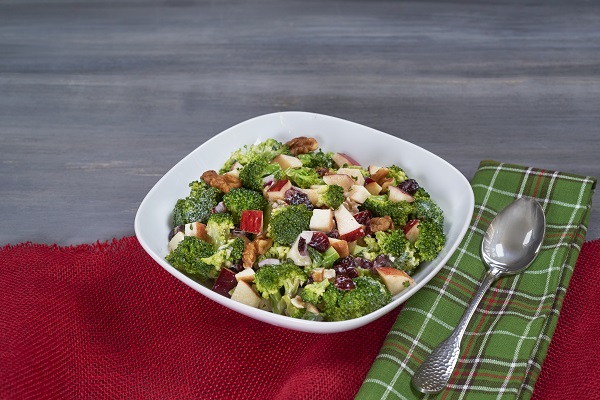5 Tips for Starting a Kidney-Friendly Garden
With all of the uncertainty surrounding COVID-19 and related changes, now more than ever, people want to know where their food is coming from. Garden centers are seeing an increase in the number of seeds being purchased for home gardening and people are researching how to grow their favorite foods at home.
Spring is the perfect time of year to start planning a summer garden. Not only is gardening a great hobby, it can also be a great way to save money and be earth-friendly. Plus, eating what you grow is a wonderful experience. These tips may help you to get started.
Think About What You Like to Eat
Choose vegetables and herbs you use regularly. Great tasting, low potassium kidney-friendly vegetables include broccoli, cucumbers, eggplant, green beans, leeks, lettuce, okra, onions, peppers, radishes and squash (e.g., zucchini, spaghetti and crookneck). Herbs such as basil, chives, cilantro, mint, oregano, parsley, rosemary, sage, tarragon and thyme are a great addition to the garden and will bring fresh flavor to your recipes. Some herbs are perennial, meaning they come back year after year, so one plant may produce herbs for many years. Berries are a great choice for a kidney-friendly homegrown fruit. To find out which fruits, vegetables and herbs grow best in your area, you need to know what planting zone you are in. Use this USDA Zone Map to identify your zone. Local garden centers also carry seeds and plants that are recommended to grow in your area.
Consider Your Space
Choose a place that gets at least six hours of sunshine per day in an area you will be able to water easily. If you don’t have a lot of space for a garden, consider square foot, vertical or container gardens. Barrels, buckets, hanging baskets and clay pots are all great container choices. If your container doesn’t have drain holes, use a drill to make a few holes in the bottom to allow for proper drainage.
Plan Your Space
Once you determine what your garden area will look like, take time to decide what to plant and where to plant it. Plant vines in an area where they will be able to climb, such as along a fence or in a container with a trellis. Squash can take up a lot of space so you won’t want to plant them too close to other vegetables. Some vegetables produce early so you could harvest them then plant something else in that space if desired. If you have space, consider planting a fruit tree. Apples, lemons, limes, peaches, pears and plums are all great kidney-friendly options.
Plant Your Crop
Check with your local garden center for information about soil and fertilizer, if needed. Your seed packet will likely tell you the best time to plant your crop. One option is to start seeds indoors and transfer them outside once they grow into seedlings. Buying plants ready to be put into the ground or containters from your local garden center is another option. Choose plants with green leaves and stems and try to avoid plants with yellow or brown leaves as they may struggle to produce.
Care for Your Garden
Your garden will need to be watered regularly. Depending on the weather, climate and time of year you may need to water once a day or more. Additionally, some container gardens may dry out more quickly so you may need to water them more often than a traditional garden space. Check the soil and pay attention to wilting leaves and other signs the plants need watering.
When it’s time to harvest your crop make sure to wash your produce thoroughly. Enjoy your harvest by experimenting with kidney-friendly recipes.
Summer Garden Recipes

- Broccoli Apple Salad
- Chilled Summer Squash and Turmeric Soup
- Cucumber and Radish Salad
- Green Beans with Turnips
- Marinated Fresh Vegetables
- Strawberry and Goat Cheese Spring Salad
- Summer Garden Eggplant
References
- https://www.reuters.com/article/us-health-coronavirus-gardens/home-gardening-blooms-around-the-world-during-coronavirus-lockdowns-idUSKBN2220D3
- https://planthardiness.ars.usda.gov/PHZMWeb/InteractiveMap.aspx
Visit DaVita.com and explore these diet and nutrition resources:
DaVita Kidney-Friendly recipes
Kidney Smart® Classes taught by kidney experts in your area
This article is for informational purposes only and is not a substitute for medical advice or treatment. Consult your physician and dietitian regarding your specific diagnosis, treatment, diet and health questions.

Recent Comments